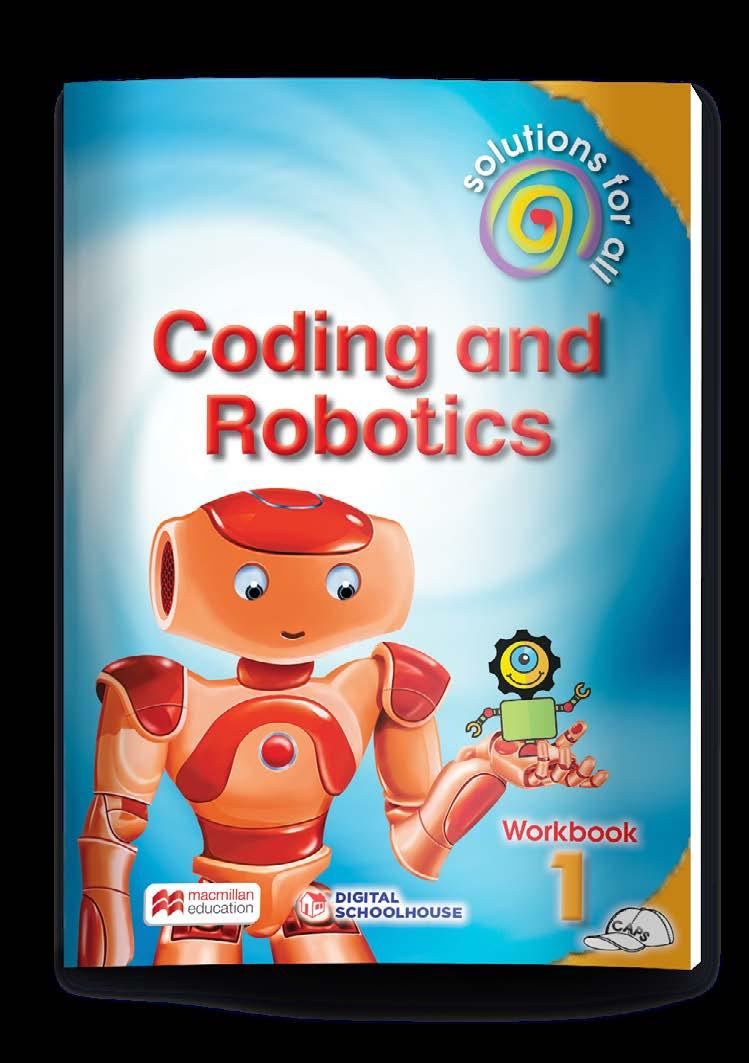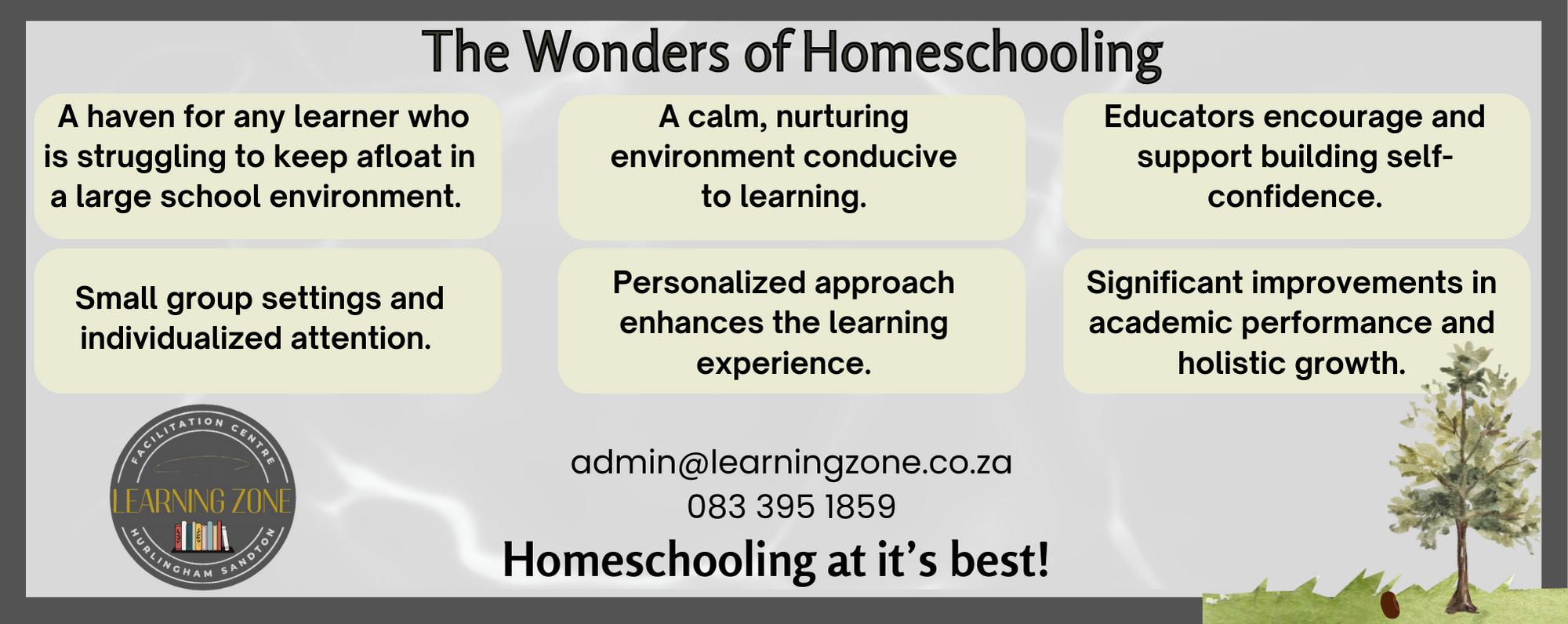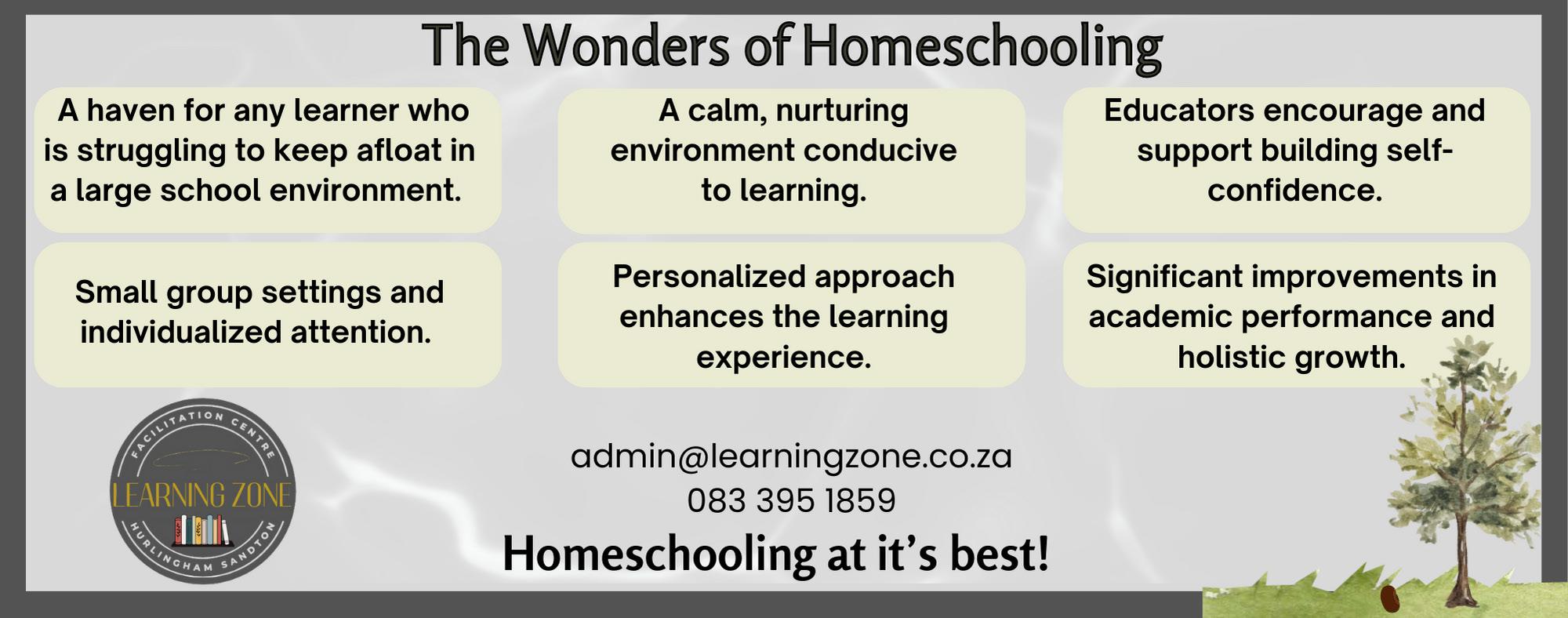





Website:







Email:

SAMPLE PAPERS











Website:







Email:





The revised X-kit Achieve! English Essential Reference Guide and X-kit Presteer! Afrikaans Essensiële Gids have been updated and improved to provide even more support for the CAPS curriculum.


For grades 8 to 12 and beyond
Covers the South African curriculum Includes an exam preparation section For home language and additional languages Packed with explanations and examples
Order now T: 021 532 6008 E: info@mml.co.za
Available in Afrikaans as X-kit Presteer! Browse and purchase eBooks at shop.mml.co.za
Homeschooling in SA: A four-step guide
Thorough preparation and understanding –particularly of the legal landscape – are needed before going the homeschooling route.
Empower your child
Nurturing resilience in young children is paramount for their growth and development in a country and world filled with challenges.


12
Baby, it’s cold outside
The days are short and the air’s cold, which means winter is upon us. Here are our top seven ways to beat the winter blues.





Mid-year exams are a critical juncture
The matric class of 2024 has kicked into high gear as their mid-year exams, often referred to as prelims, come sharply into focus.
Cooking and bonding
Explore the flavours of South African cuisine with these mouthwatering dishes your family will love.
Used mindfully, praise can help to create an affirmative, enabling learning environment and the development of a growth mindset.

How to beat exam stress.
In the delicate balance of parenting, a fine line exists between nurturing and hovering too closely.
Ask Dalena Dalena van der Westhuizen answers questions and concerns from parents about learning, concentration, memory and cognitive development.
There are several obstacles for trainees to overcome when they move from learnerships to steady jobs.
Could extra lessons be a solution?
Only 14,4% of students who started Grade 1 with the 2023 cohort of matrics passed core maths. Could extra lessons be a solution?



Have you ever been amazed at how easily and automatically a good lecture rolls off the tongue? It seems that once you become a parent, a part of your brain that you didn’t even know existed becomes activated.
I’m sure I’m not the only parent who notices that the moment my “lecture mode” kicks in, my kids’ “learning and listening mode” switches off!
Love and Logic, a research-driven, whole-child philosophy founded
in 1977, says that in the 47 years since then, it has noted that successful parents and educators understand that the more words we use when kids are misbehaving or acting irresponsibly, the less effective we become.
Children have control over whether or not they listen to us and are always ready to prove it if we pretend that we're the ones doing the controlling. It’s a battle –a testing of boundaries – that they can’t resist.
I’ve found that plenty of short discussions, rather than a few long ones, are more effective and that it’s important to listen – really listen – when my kids talk: not only to what they say, but to what
they don’t or can’t or won’t say.
We learn a lot from our own mistakes. I’ve realised again and again that when it comes to parenting, we often desperately search for answers we may not have. Sometimes, though, listening instead of lecturing can be the most important response we can give our kids.
We hope that you enjoy this issue as much as we’ve loved putting it together for you. We’re grateful to every contributor who shares their wisdom with us in some of the very interesting features in these pages. Happy reading!
Editor Adri Viviers | adri@isikhova.co.za
Managing Director Imraan Mahomed imraan@isikhova.co.za
Operations Director Thuli Majola thuli@isikhova.co.za
Copy Editor Anne Phillips
Design & layout Joanne Brook joanne@isikhova.co.za
Advertising Sales 011 883 4627
Recognised as a homeschooling stakeholder by the Department of Basic Education
Officially endorsed by CNA as its preferred homeschooling media partner
Subscriptions & General Enquiries: sahomeschooling@isikhova.co.za
SA Homeschooling magazine is independently published by Isikhova Media (Pty) Ltd, Johannesburg, 2193, South Africa Tel: 011 883 4627 | www.isikhova.co.za



























The prospect of homeschooling can be exciting and opens up many options for families, but thorough preparation and understanding are needed – particularly of the legal landscape –before this approach is taken
Homeschooling as an educational pathway is growing substantially in South Africa for various reasons, including parents’ mobility, the individual needs of a student and lack of space at good schools in a given area.
Colin Northmore, Principal of Evolve Online School, a brand of SA’s leading private education provider ADvTECH, says there are four key areas parents should take into account when considering homeschooling as an option:
1Navigating legalities
“Understanding and adhering to the legal framework set by the South African Schools Act is crucial. Parents must apply for permission to homeschool through the provincial education department,” notes Northmore.


“This process includes notification, registration and presenting a detailed learning plan aligned with national education standards. Ensuring compliance with these laws legitimises homeschooling and sets a structured foundation for your child’s education. It can be daunting, but it’s easily solved if you choose a curriculum where your provider supplies the learning plan. A good online school will be able to assist
parents and provide expert support in this regard.”
Curriculum selection and tailoring education to your child Choosing the right curriculum is a pivotal step. SA offers a range of local and international curricula, each with a unique education approach.
“This is probably the most important step, because it defines the limits and opportunities for your child. Parents should consider their child’s learning styles, interests and future educational goals when selecting a curriculum. Additionally, integrating technology and various educational resources can enhance the learning experience, making it more engaging and comprehensive,” says Northmore.
Parents starting homeschooling in SA may struggle to understand the differences between the

offerings. Schools vary in how they deliver the curriculum, from only sending you the materials by post to conducting a full-time virtual school. Some provide qualified teachers and put children in small classes, while others adopt a lecture-style model with hundreds of children in the live session. Here are some questions you can ask to compare various offerings:

“Embarking on homeschooling is a decision that requires careful planning and a commitment to providing a complete educational experience.”
• What examination will my child write at the end of matric? Is the provider registered with a recognised examining body and did they have to undergo a quality assurance process to achieve that recognition?
• Will qualified teachers be managing my child’s learning? Are there live classes and how many students are in them?
• How does assessment work?
• Does the provider use an innovative approach to teaching and learning? Will the curriculum provide a futurefocused education for my child and can the provider explain their approach?

• What technology will I have to buy and how does the supplier integrate educational technology and apps into the learning?
• How involved will I have to be?
• Will my child be able to interact with their peers and does the provider make any provision for social development?
• What if my child has a physical challenge or is neuro-diverse? Can the provider accommodate their specific needs?
3
Creating an effective learning environment
Transforming a part of your home into a dedicated learning space is more than just a physical change; it’s about creating an environment that contributes to learning and growth.
“A consistent routine that balances academic, physical and creative activities is
essential. Homeschooling offers the flexibility to adapt this environment and schedule to suit your child’s needs better – a significant advantage over traditional schooling methods,” notes Northmore.
4
Community engagement and support
Homeschooling isn’t a journey to be embarked upon in isolation. Joining the homeschooling community offers invaluable support and resource-sharing opportunities. From networking with other homeschooling families to seeking professional educational advice, these connections can significantly enhance the homeschooling experience. Additionally, enrolling children in extracurricular activities can ensure they develop social skills and explore various interests beyond the academic curriculum.
“Embarking on homeschooling is a decision that requires careful planning and a commitment to providing a complete educational experience,” says Northmore.
“By understanding legal requirements, choosing the right curriculum, creating a nurturing learning environment and engaging with the broader homeschooling community, parents can ensure a successful and enriching educational journey for their children. The essence of homeschooling lies in its adaptability and responsiveness to each child’s unique needs and aspirations and its ability to offer a personalised educational pathway that can lead to profound personal and academic growth.”
“The essence of homeschooling lies in its adaptability and responsiveness to each child’s unique needs and aspirations.”



Fostering resilience in young children is imperative for their holistic development in an increasingly complex world. Ursula Assis, Country Director of Dibber International Preschools, emphasises cultivating resilience through cognitive, emotional and social skills.
Nurturing resilience in young children is paramount for their growth and development in a country and world filled with challenges 1

As she explains, resilience refers to a child’s ability to respond positively to adverse events. While some may perceive resilience as an innate trait, she stresses that it can also be cultivated through cognitive, emotional and social skills. “Resilience isn’t just about bouncing back from setbacks; it’s also about equipping children with the tools to navigate life’s uncertainties with confidence and adaptability,” says Assis.
She suggests the following nine practical ways parents can foster resilience in their young children:
Setting boundaries: Assis advises parents to set boundaries and encourage independence in their children. Saying “no”, when appropriate and allowing children to tackle tasks independently instil a sense of self-reliance and responsibility.
Avoiding over-protection: While ensuring safety is essential, she cautions against over-protecting children. Allowing them to explore, experiment and occasionally experience failure is crucial for their growth and resilience.

Building strong family bonds: A supportive and loving family environment lays the foundation for resilience. Spending quality time together, fostering open communication and nurturing emotional stability contribute to a child’s ability to cope with challenges.
Asking empowering questions: Assis suggests asking “How?” questions to encourage problem-solving skills and a positive outlook, instead 4


“It’s
also about equipping children with the tools to navigate life’s uncertainties with confidence and adaptability.”
of focusing on mistakes. This approach helps children develop resilience by shifting their perspective from dwelling on failures to finding solutions.
Embracing mistakes: Making mistakes is a natural part of development. Assis advocates allowing children to make and learn from mistakes, emphasising that resilience is built through overcoming challenges.

step out of their comfort zones. Providing guidance on assessing risks and taking appropriate precautions empowers children to explore new opportunities confidently.
Story-telling and inspiration: Sharing stories of resilience and perseverance inspires children to believe in their own abilities. Assis recommends storytelling as a powerful tool for instilling values of determination, passion and resilience in young minds.
Positive communication: The tone of communication plays a significant role in shaping children’s perceptions and responses to challenges, with parents encouraged to communicate positively and emphasise encouragement and support, rather than fear or negativity.
Providing unconditional support: While fostering independence, the importance
of maintaining a supportive presence in children’s lives needs to be stressed. Knowing that they have a reliable source of love and guidance gives children the confidence to navigate obstacles and seek help when needed.
In conclusion, Assis reiterates that parents play a crucial role in modelling resilient behaviour for their children. By incorporating these strategies into parenting practices, parents can empower their children to thrive in the face of adversity.
Encouraging healthy risk-taking: It’s key to highlight the importance of encouraging children to take calculated risks and

The days are short and the air’s cold, which means winter is upon us. While some families love the arrival of this season, for many the freezing weather has the potential to drive them crazy. So what’s a homeschooling mom to do? Here are our top seven ways to beat the winter blues
1
Declutter, re-organise and redecorate your homeschool space When homeschooling starts feeling repetitive and mundane, freshening up your homeschool space always reinvigorates. Take some time to re-organise your homeschool area to make it more functional and attractive.
Get plenty of exercise
Exercise is a great moodenhancer. Try exercising at least 20-30 minutes every day. Doing it together as a family can be lots of fun.

2 3 4

Change the scenery
Changing your surroundings for your homeschool lessons is an easy way to add variety when things start to feel monotonous. When the weather permits or the sun’s shining, spread a blanket on the grass and take your books outside to work your way through your lessons or read aloud.
Bring nature inside Flowers makes us happy… and, if they happen to be big, colourful ones, that’s even better. During winter, make a point of keeping some pretty arrangements of cut flowers in the living room or kitchen or wherever you spend the majority of the day.


6
5
Get baking! Grab the kids, pick your favourite cookie recipe and spend a day baking and decorating cookies or another favourite treat. Enjoy the time having fun and cooking (and cleaning the kitchen) together to ward off the winter blues. Then eat what you’ve baked with steaming hot cocoa.


Plan an adventure One of the benefits of homeschooling is the flexibility to experience learning in other places. Visit the library, the zoo or a museum you’ve been meaning to see. Or go to a play or a concert. Plan a road trip to visit friends or family or explore a landmark you want to show your kids. Search online for things in your area you’ve never explored, like historical sites, birding trails, new parks or local arts.
7
Do something for someone else If possible, have your children help you do something to brighten someone else’s day. We all know that doing something nice for someone else often

makes us feel just as good (or better!) than it makes the recipient feel. Help an elderly neighbour or relative clean her house, do their grocery shopping for them, or bake cookies for someone who’d enjoy them.

Mid-year exams aren’t merely academic hurdles, but pivotal milestones that play a crucial role in shaping students’ futures, particularly concerning university entrance and scholarships.
“The mid-year exams serve multiple critical functions in the academic journey of a matric student. Firstly, they offer a comprehensive assessment of the student’s understanding and mastery of the curriculum up to that point. This assessment is invaluable for identifying areas of strength and pin-pointing subjects or topics where students may need additional support or revision,” says Dingaan Moropane, Acting Deputy Dean: Teaching and Learning at the Independent Institute of Education’s Rosebank College.
“Moreover, the results of these exams provide a realistic projection of potential final matric scores,” he says.
Moropane notes that universities and private higher education
The matric class of 2024 has kicked into high gear as their mid-year exams, often referred to as prelims, come sharply into focus
institutions closely scrutinise midyear marks when considering applications for admission.
“Given the competitive nature of university entrance, particularly for prestigious programmes or institutions, the importance of securing strong mid-year exam results can’t be overstated. High marks in these exams can significantly enhance a student’s application, making them more attractive to admission panels and increasing their chances of securing a spot in their desired course or programme.”
Additionally, many scholarships, bursary programmes and
financial aid opportunities also consider mid-year exam results as part of their selection criteria.
“Achieving excellent marks can open doors to financial support, which can be instrumental in enabling students to pursue higher education, especially in cases where financial constraints might otherwise limit their options.
“For students aiming for university entrance, it’s crucial to understand that these mid-year exams are a key component of the admission puzzle. Universities are looking for candidates who not only excel academically, but also demonstrate
“For matric students aiming for higher education, excelling in these exams is paramount.”

consistency and improvement in their academic record. Strong performance in mid-year exams signals to universities that the student’s well-prepared, motivated and capable of handling the rigours of tertiary education.”
Moropane notes that understanding the minimum requirements for further studies is crucial for students planning their academic future. He says students can view the breakdown of the requirements for Higher Certificate, Diploma and Bachelor’s degree programmes on the Department of Basic Education’s website.

• To qualify for Higher Certificate studies, students need to have obtained a National Senior Certificate. A key requirement is achieving a minimum of 30% in the language of learning and teaching at the higher education institution, a standard certified by Umalusi, the Quality Assurance Council. It’s important to note that specific institutions and programmes may have additional requirements, including subject combinations and achievement levels.
• For entry into Diploma programmes, the baseline requirement is also a National Senior Certificate. In addition to the minimum of 30% in the
institution’s language of learning and teaching, students must secure an achievement rating of 3 (moderate achievement, 40%-49%) or higher in four recognised 20-credit subjects. As with Higher Certificate programmes, institutions may stipulate further requirements, including specific NSC subjects and performance levels, to meet both institutional and programme-specific needs.


• To pursue a Bachelor’s degree, students must hold a National Senior Certificate, achieving at least 30% in the language of learning and teaching as per the institution's requirements, verified by Umalusi. Furthermore, an achieve-
ment rating of 4 (adequate achievement, 50%-59%) or higher in four recognised 20-credit subjects is necessary. Similar to other qualifications, universities may demand additional subject combinations and achievement standards to align with the specific requirements of their programmes.
While the National Senior Certificate forms the foundation for further studies, the specific marks and subjects required can vary significantly, depending on the level of study and the institution.
“Students should carefully research the requirements of their desired programmes to ensure they meet all necessary criteria. Given the stakes, preparation for mid-year exams should be thorough and strategic,” says Moropane.
The mid-year exams are a critical juncture in the matric year, serving not just as an academic assessment, but as a vital indicator of future success in university admissions and scholarship opportunities.


Here are three local, lekker recipes that you can try at home and that we guarantee the whole family will love!
Quick and easy milk tart
Preparation time: 15 mins
Cooking time: 15 mins
Ingredients:
1 packet Tennis biscuits, crumbed
125g butter or margarine, melted
1 medium-sized tin condensed milk
1,25L (2½ cups) milk
5ml (1 tsp) vanilla essence
2 eggs
3,5ml (½ tsp) salt
15ml (1T) custard powder
45ml (3T) Maizena
What else you will need:
Measuring cups and a whisk
1 wooden spoon
1 medium-sized cooking pot
1 medium mixing bowl
1 glass Pyrex dish (24cm x 24cm x 13cm)
Method:
For biscuit base:
• Mix the melted butter and biscuit crumbs together and press into the Pyrex dish.
• Flatten the base so that it forms a thin layer on the bottom. Put aside for later.
For the milk tart mixture:
• In a medium saucepan, pour the tin of condensed milk and 375ml (1½ cups) of milk. Bring the mixture to boiling point.
• In a mixing bowl, add the eggs, 125ml (½ cup) of milk, the vanilla essence, the salt, the custard powder and the Maizena. Mix well.
• Pour the egg mixture into the milk mixture, which is still boiling hot.


Preparation time: 20 mins
• Whisk well until everything is combined. The mixture should be thickening.
• Pour the thickened mixture onto the biscuit base.
• Dust with cinnamon and leave to cool in fridge until serving.
Cooking time: 3 hours
Ingredients:
4-5kg oxtail
3 large white onions, chopped
1 whole bulb of celery, chopped
6 medium-size carrots, chopped

3-4 small fennel bulbs, chopped
1L (4 cups) red wine
2L (8 cups) water
3 beef stock cubes
2 x 50g packets tomato paste
Salt and pepper to taste
60ml (4T) Worcestershire sauce
3 packets oxtail instant soup powder
What else you will need:
A large cooking pot
A wooden spoon
An oven tray
A strainer
A small mixing bowl
Method:
• Pre-heat oven to 180°C.
• Once the oven is hot, place the oxtail in a large oven tray with some oil, salt and pepper. Brown for about 15-25 minutes, or until golden-brown.
• Place the roughly chopped onion, celery, carrots and fennel in a large pot with a little oil and sauté for about 10-15 mins, or until light brown.
• Using a pair of tongs, place the roasted oxtail in the pot with the sautéed veggies. Add the packets of tomato paste and mix well until all the meat and veggies are covered.

• Add the wine and allow to simmer for 10 mins until the wine has evaporated.
• Add the stock cubes and water to the pot. Cook on a high heat until boiling, then lower the heat to medium, bringing the pot to a gentle simmer.
• Cook covered on a low heat for 3-4 hours, stirring occasionally, until the meat is tender. Top up with water, when necessary.
• Once the meat is soft and tender, remove from heat. Using the tongs, place the oxtail in an ovenproof dish. Strain all the veggies through a colander into a separate pot.
• Place the strained veggies back on the stove on a medium heat. Dissolve the 3 packets of oxtail soup in a little water and add to the veggies, stirring occasionally until thick. Add salt to taste.

• Once the sauce is thick, pour over the oxtail and place in the oven, covered with foil, on 100°C for 30-45 minutes.
• Serve with mashed potatoes, broccoli or sides of your choice.

Bacon and mushroom “paptert”
Preparation time: 15 mins
Cooking time: 75 mins
Ingredients:
15-30ml (1-2T) olive oil
2 garlic cloves, finely chopped.
200g diced bacon, sautéed
250g button mushrooms, sliced and sautéed
1 large white onion, diced and sautéed
320g raw maize meal
2 x 420g tin cream-style corn
500ml (2 cups) cream
450g white cheddar cheese, grated
250ml (1 cup) water
3,5ml (½ tsp) salt
5ml (1 tsp) baking powder

What else you will need:
A mixing bowl
A large ovenproof dish
A wooden spoon
A frying pan
A grater
Measuring cups and spoons
Method:
• Pre-heat oven to 180°C.
• Add oil, onions, garlic, bacon and mushrooms to a large frying pan and sauté on a medium heat for about 20 mins, or until fully cooked and golden-brown. Set aside.
• In a large mixing bowl, add the raw maize meal, tinned corn, 150g grated cheese, the onion and bacon mixture, the water, the salt and the baking powder. Mix until well combined.
• Pour the mixture into a large heat-proof dish. Top with the remainder of the grated cheese.
• Bake for 75 mins at 180°C.
the former owner of a coffee shop, Anri used to share the kitchen with skilled chefs. Today she shares it with her four busy little offspring who’re all eager to pitch in and help.
Don’t cram for your exams at the last minute – rather make sure you really understand your work so that the information will stay with you forever. That’s the advice of Good Work Foundation’s Ntsako Mandlazi, who manages the Bridging Year Academy (BYA) run by the education non-profit with campuses in Mpumalanga and the Free State
Having earned a BEd degree and after seeing scores of BYA students prepare for their examinations, Mandlazi knows a thing or two about exam stress: “Every time I entered the exam room or joined an online exam and wasn’t prepared, I felt very anxious – and that affected my results,” she recalls.
She offers the following tips from her BYA students for anyone facing the daunting prospect of writing exams at this time of year:
1
Don’t leave studying until the last minute or the day before your exam. You’ll find it easier to relax during exam time knowing that you studied everything you needed to.
2
Get organised well in advance: Ask all the questions that are on your mind and make sure you have all the supplies you need. This will help you calm down, knowing you’ve got everything under control.

friends for a while – rather think about your future and how you need to study to be successful.
6
Make sure that you get enough sleep and rest before taking an exam so that you’re mentally fresh.
7
Eating healthily and exercising will help prepare your body and mind for the coming exams.
8
Manage expectations:
Pressure from people around you can be intense, but remember that it’s your life and your exam –and you can control the situation by being well prepared.
Remember to breathe: You might be well prepared and well rested, but nerves can ruin everything. Practise mindfulness techniques in order to calm down and shift your attention back to the present moment.
3 4 5
When preparing for an exam, don’t go out every day and stop seeing your
Avoid constantly checking your phone so that you can focus fully on your studies.
The final word comes from Mandlazi, who advocates a holistic mind-body approach to studying. She also emphasises that students need to be in the right frame of mind psychologically to tackle exams. “Even the bestperforming, brightest students can be affected by a bad situation at home, for example. If you’re struggling, ask for help and engage with your peers or teachers, who’ll guide you through it,” she says.





The Solutions for all Coding and Robotics series aims to spark curiosity in young learners for coding and robotics, essential skills in today’s tech-focused world.
Tailored for the next generation of tech enthusiasts, the Workbook combines engaging content, hands-on activities, and real-world applications to make learning exciting.
A comprehensive Teacher’s Guide offers clear step-by-step instructions for each lesson, eliminating the need for additional lesson plans. It also boosts novice teachers’ confidence in delivering this new subject.
Our Coding and Robotics solutions aren’t just limited to textbooks. With dedicated teacher support through workshops, webinars, and online teaching tips, you’ll feel confident implementing the curriculum using our Solutions for All Coding and Robotics series, guiding your learners through the exciting world of technology effectively.



BAs mid-year exam time approaches, it’s essential for parents to shift their focus beyond just grades and academic performance, says Dalena van der Westhuizen, Cognitive Development Specialist, Executive Function Skills Coach and co-founder of BrainAbility
y monitoring their child’s executive function skills during exams, parents can gain valuable insights into areas where support may be needed and make informed decisions to provide that support before the year-end exams.
Executive function skills are essential for effective learning, organisation and problem-solving, and monitoring them can provide valuable insights into areas where support may be needed.
Understanding executive function skills
“Executive function” refers to
a set of mental processes that help individuals plan, organise, strategise, focus attention, remember instructions and manage time and space effectively. These skills are crucial for tasks such as studying, completing assignments, managing time during exams and adapting to new situations.
Tell-tale signs of weak executive function skills
1. Planning and organisation:
• Disorganised; inability to create study schedules, prioritise tasks or generally keep to any of the planning done.
• Struggles to create a study plan, constantly shifts between tasks without completing any, or frequently forgets deadlines.
• This leads to missed study opportunities, incomplete assignments and last-minute cramming, ultimately resulting in lower exam scores.

2. Time management:
• Inability to manage time effectively; poor estimation of time needed for tasks.
• Frequently procrastinates or struggles to meet deadlines.
• This leads to rushed or incomplete exam responses, missed sections or inadequate preparation for timed exams, resulting in lower scores.
3. Task initiation:
• Difficulty starting tasks (procrastination); avoidance behaviour.
• Spends excessive time planning without taking action, avoids starting challenging tasks or is easily distracted before beginning.
• This leads to delayed studying, incomplete assignments and a lack of preparation for exams.
4. Working memory:
• Forgetfulness; difficulty remembering and applying previously learnt information; always has to “start over”.
• Frequently forgets instructions, struggles to retain information while studying or has difficulty recalling information during exams.
• This leads to difficulty understanding complex concepts, recalling key information and applying knowledge effectively during exams.

5. Self-control:
• Impulsivity; difficulty staying focused; emotional reactivity.
• Is easily distracted while studying, has difficulty remaining focused for extended periods, or reacts emotionally to setbacks or challenges.
• This leads to distractions during studying, impulsive decision-making and emotional responses that interfere with effective exam performance.
6. Flexibility:
• Resistance to change, difficulty adapting to new strategies or circumstances.
• Becomes frustrated when faced with unexpected changes in study plans, struggles to adjust strategies when a particular approach isn’t working, or resists trying new study techniques.
• This leads to rigidity in studying approaches, an inability to adapt to exam questions or formats and difficulty problemsolving during exams.
How to monitor executive function skills during exam time
• Encourage observation: The exams ahead offer a great opportunity for parents to observe their child’s study habits, behaviour and performance at this time.
• Look for strengths and weaknesses: Pay attention to areas where your child excels and where they struggle.
• Consider feedback from teachers and your child: Review any feedback provided by teachers or the child themselves regarding study habits, organisation and time management.
“Executive function skills are essential for effective learning, organisation and problem-solving, and monitoring them can provide valuable insights into areas where support may be needed.”
• Reflect on observations: Think about what you’ve noticed and identify patterns or areas of concern related to executive function skills.




• Seek professional guidance, if necessary: If parents identify significant challenges or areas of weakness, they should consider seeking support from an academic coach or a professional who specialises in executive function development.
• Collaborate with your child: Involve your child in discussions about their strengths and weaknesses, and work together to create strategies for improvement.
• Use exam time as a learning opportunity: Emphasise the importance of using exam time not only to assess academic knowledge, but also to identify areas for growth in executive function skills.
• Develop a plan for ongoing support: Work with your child and any professionals involved to develop a plan for ongoing support and skills development,
whether through additional coaching, resources or strategies implemented at home and school. Foster the development of crucial executive function skills that will serve your child well in both academics and other areas of their life.
Remember, by staying focused on academics only (eg through tutoring), especially long-term, the responsibility for success always remains with the tutor, so a child never develops the skills or experience to take on that responsibility themselves. By contrast, focusing on identifying which underlying skills might need attention aims at a longterm solution where a child becomes a strong, independent student.





"As a parent/ guardian or teacher, understanding the nuances of praise and the significant impact that it has on a child’s development and psyche is paramount. While praise is essential, it’s equally important to encourage effort, resilience and the development of a love of learning in the child. Combining this with a supportive environment means empowering the child and enabling them to thrive and be successful,” says Lynda Eagle, Academic Advisor at ADvTECH schools.
Eagle says effective praise should be specific, celebrate effort and emphasise practice.
“Eagle says effective praise should be specific, celebrate effort and emphasise practice.”

Praise is a powerful tool that can shape the way a child thinks about themselves and ultimately impacts their behaviour, motivation and selfactualisation. Used mindfully, praise can help to create an affirmative, enabling learning environment and the development of a growth mindset
“Praise should focus on the actions, rather than the innate characteristics of a child,” she says. Be specific and descriptive Being specific helps children understand what they did well and how they can build on or extend their skills, understanding and knowledge.
“Instead of using a generic praise such as ‘Good job!’, it would be more impactful to acknowledge
the work that’s been done and the effort applied. For example: ‘I noticed how carefully you arranged those blocks when creating your pattern. Would you like to explain your thinking to me?’” advises Eagle.
When praising a child, it’s important that the adult’s fully present and shows genuine interest. This fosters connections and helps build reciprocal relationships. It’s an opportunity
to engage with the child and share in their experiences to gain a deeper understanding of their thinking.
When a child’s working towards a goal, it’s important to provide support and encouragement over time. Adults can offer praise and acknowledgement of the work that’s been put into achieving the result. This highlights the fact that the effort and process in achieving the goal are as, if not more, important than the outcome.
Acknowledging that learning through our mistakes is a valid part of the learning process removes performance paralysis and inculcates a growth mindset.
“Mistakes and setbacks are seen as important learning opportunities. Praise children when they manage disappointments well and encourage them

to keep trying and moving forward,” advises Eagle.
She adds that body language is also important.
“Using an enthusiastic tone and adopting a relaxed posture while smiling and acknowledging the child drives the message of support home and gives them the psychological boost they need to continue doing their best. Take care to be sincere, however, as children can sense inauthenticity and fake praise.”

Balance and reflective practice It’s important to remember that excessive praise, or praise that isn’t sincere, may undermine the child’s intrinsic motivation and the development of a strong internal sense of accomplishment.
Further, as noted by Carol Dweck, this may lead to the “development of a false perception regarding their true abilities and skills”. By offering praise when warranted and providing constructive and mindful feedback when necessary, the child builds trust in the process and the support provided as they navigate their way through the various learning experiences.
Eagle says encouraging and engaging in reflective processes aids children with the recognition of what went well, what they could do differently and the next steps. This helps foster the development of self-motivation, self-assessment and, ultimately, the transferring of knowledge, skills and understandings to new and unfamiliar settings – now and in their future.
Mindful and specific praise builds trust and will have a profound impact on a child’s development.
“By mastering the art of praise, parents and teachers can inspire confidence, resilience, a growth mindset and, most importantly, a love of learning in their children,” says Eagle.
In the delicate balance of parenting, a fine line exists between nurturing and hovering too closely. Helicopter parenting, characterised by over-protection, micromanagement and excessive involvement, while rooted in love and concern, can inadvertently hinder a child’s development
Ursula Assis, Country Director of Dibber International Preschools, sheds light on helicopter parenting and its long-term effects on children, urging parents to find a healthy balance between support and autonomy.
Understanding helicopter parenting As Assis explains, helicopter parenting stems from a deep desire to shield children from harm and ensure their success. However, this hypervigilant approach can impede children’s ability to develop crucial life skills, such as independence, resilience and problem-solving.

The long-term impact on children She outlines five significant long-term effects of helicopter parenting on children:
1. Decreased confidence and self-esteem: By constantly intervening and limiting their independence, helicopter parents inadvertently
hamper children’s confidence and self-esteem, hindering their ability to navigate challenges with resilience.
2. Inability to cope with emotions and failures: Sheltering children from failure deprives them of valuable learning experiences and coping mechanisms, leaving them ill-prepared to handle setbacks and disappointments.

3. Increased anxiety: The constant pressure to meet parental expectations and the lack of autonomy can lead to heightened stress and anxiety levels among children, affecting their overall well-being.
4. Sense of entitlement: Children accustomed to having their every need catered to may develop a sense of entitlement, expecting success without putting in the necessary effort or facing adversity.
5. Non-existent life skills: Over-protected
children may lack essential life skills, such as problemsolving and resilience, making it challenging for them to navigate the complexities of the real world independently.
How to avoid helicopter parenting Assis offers practical advice for parents on how to avoid falling into the trap of helicopter parenting:
• Empower independence: Allow children to tackle challenges and solve problems on their own, gradually increasing their autonomy as they grow.
• Encourage resilience: Support children when they’re facing setbacks and disappointments, emphasising the importance of perseverance and resilience in overcoming obstacles.
• Promote life skills: Provide opportunities for children to develop essential life skills, such as decision-making, problemsolving and emotional regulation, through hands-on experiences and real-world challenges.
Be the net when they fall Assis underscores the importance of being a supportive presence in children’s lives, offering comfort and encouragement when they encounter difficulties. Parents can help children build the resilience and confidence they need to thrive by serving as a safety net, rather than a hovering presence.

“It’s important to balance support and autonomy in parenting, allowing children the freedom to explore, learn and grow while providing a safety net of love and guidance. By avoiding the pitfalls of helicopter parenting and fostering independence and resilience in children, parents can empower them to become capable and confident individuals, prepared to navigate life’s challenges with courage and resilience,” she says.
Dalena van der Westhuizen will answer any questions or concerns you may have about learning, concentration, memory and cognitive development – and, of course, the frustrations arising from these
What are some important “don’ts” for dealing with my eight-yearold daughter with ADHD? –Bianca du Toit
Hi Bianca
1. Don’t criticise or punish for symptoms: Specifically, don’t punish behaviours that are part of her ADHD, like forgetfulness or fidgeting. Instead, focus on understanding them and working with her to manage them.
2. Don’t overwhelm with too many instructions: Giving too many instructions at once can be overwhelming. Break tasks into smaller, manageable steps and give one instruction at a time.
3. Don’t neglect positive reinforcement: Constantly pointing out mistakes can be discouraging. Be sure to recognise and praise her efforts and achievements, no matter how small.


4. Don’t ignore her need for routine: Children with ADHD often benefit from a structured routine. Avoid being too spontaneous with changes, as this can cause anxiety and confusion.
5. Don’t isolate her: Social interactions can be tough for kids with ADHD. Encourage positive social experiences and help her develop social skills.

Is there technology you would recommend that can help my child in self-directed learning? – Linda Halgreen
Hi Linda
Although I’m not a self-directed learning expert, there are several technologies that are highly recommended.
One is Khan Academy, a free online platform offering a wide range of subjects with
instructional videos and practice exercises that allow children to learn at their own pace and explore topics which interest them deeply.
Another is Duolingo for language learning. It’s engaging and gamified, making the process of learning a new language (great for your brain!) fun and self-paced.
For more interactive learning, there’s Scratch for introducing children to coding and creative problem-solving. It’s a visual programming language that encourages children to create their own projects, developing both creativity and technical skills.
Also consider Google Classroom for organising learning materials and assignments.
Is it true that vitamins B and C can help a child focus? –
Sinette van Staden
There is some evidence suggesting that vitamins B and C can support better focus and concentration in children.
Supplements can be beneficial if a deficiency’s present. However, if the underlying skills on which

the brain relies to pay attention and stay focused (cognitive skills) are weak, supplements merely act as “food for the brain”, while the actual problem persists. Truly addressing the problem requires pin-pointing which underlying skills are weak and need strengthening (cognitive development).
Why does my 11-year old have such a hard time remembering things? – Tanya Leeson
Research has shown that 80% of struggles with reading, memory, attention and learning are typically caused by weak cognitive skills – the brain skills responsible for how we take in, process, store and, ultimately, recall information.

We all have different strengths and weaknesses within our cognitive profile. In other words, a child might have strong visual processing skills, but have a weak working memory. That’s why even intelligent children may
sometimes struggle with certain tasks, like remembering.
It’s possible to find the “why” behind your child’s memory struggles. Start with a cognitive assessment from an organisation specialising in cognitive testing and development. The information will provide you with insights into your child’s specific cognitive profile and guide you in how best to support them.
Dalena van der Westhuizen is the co-founder and MD of BrainAbility, a cognitive development specialist, a master brain coach and an internationally certified cognitive coach. She translates the latest international cognitive research and best practice into strategies that can be applied by parents and educators alike.

A mom and a self-confessed chocoholic, Dalena enjoys working with both kids and adults to improve the way their brains process information for better learning, reading and focusing.
Send your questions for Dalena to: adri@isikhova.co.za.

There are several obstacles for trainees to overcome when they move from learnerships to steady jobs, ranging from a lack of funds to talent mismatches with available positions. Making sure graduates have the necessary abilities is crucial, especially in the fast-paced field of information technology (IT), writes CG Selva Ganesh, VP, CEO South Africa at In2IT Technologies

Mentorships are crucial links in giving graduates
the real-world knowledge and soft skills they need to work with clients. It takes a team effort from educational institutions, learnership providers and government bodies to develop a workforce that can navigate the job market of today. This necessitates a paradigm shift in which graduates view learnerships as long-term professional advancement opportunities, rather than just temporary experiences, bolstered by comprehensive training and mentorship programmes.
Many learnership participants encounter hurdles when transitioning from their programmes to stable employment. Challenges include a lack of funding for the right programmes and a disconnect between the skills taught and the needs of the economy. Moreover, the rapid evolution of technology often renders certain skills obsolete by the time graduates complete their programmes, further complicating their integration into the workforce.
Addressing these challenges requires a multi-faceted approach. Firstly, there’s a pressing need for comprehensive training programmes that are agile and responsive to the evolving demands of the IT sector. Such programmes should not only impart foundational knowledge, but also equip graduates with practical, industry-relevant skills which are

in high demand. Additionally, fostering strong partnerships between educational institutions and industry stakeholders can facilitate the co-creation of curricula that align with current market needs, ensuring that graduates are adequately prepared for the realities of the job market.
In industries like IT, junior employees often grapple with barriers such as technical complexity, communication
challenges and confidence issues when working directly with clients. Mentorship programmes play a crucial role in bridging this gap by providing guidance in necessary abilities and tactics. An experienced mentor can offer insights into navigating challenges, ultimately making graduates more job-ready and facilitating their integration into the workforce.
Furthermore, mentorship programmes not only bridge the gap between theoretical knowledge and practical application, but also cultivate essential soft skills, such as effective communication and problem-solving, which are indispensable in client-facing roles within the IT industry. By fostering meaningful relationships between seasoned professionals and junior employees, mentorship programmes create a supportive environment where graduates can not only acquire technical expertise, but also develop the confidence and resilience needed to excel in their roles. Through personalised guidance and realworld advice, mentors empower graduates to navigate complex client interactions with poise and professionalism, thereby enhancing their overall employability and career prospects.

Mentorship programmes aren’t the only approach to ensuring successful learnerships.
Corporate social investment (CSI) is paramount in empowering learnership participants for sustainable careers. Through initiatives like facilitating work placements, providing comprehensive training and offering mentorship opportunities, companies can build a talent pipeline and contribute to long-term employee retention. CSI initiatives are pivotal in driving benefits such as skills development, fostering diversity and implementing cost-effective hiring strategies. By investing in graduates and internships, companies not only fulfil their social responsibility, but also reap the rewards of a skilled and diverse workforce.
If we get down to the nittygritty, comprehensive training programmes form the foundation to equip learnership participants with the necessary skills and jobreadiness. These programmes should define focus areas, build
awareness, boost engagement and reinforce progress. Strategies such as needs analysis, clear learning objectives and regular evaluation ensure that training programmes are effective and impactful in preparing graduates for the workforce.

Successful mentorship programmes emphasise clarity, communication and commitment. To replicate and scale these programmes, regular checks, change management practices and measuring the impact on retention are essential. By fostering a culture of mentorship, organisations can empower learnership participants to shift their mindsets towards sustainable career paths.

Society, including educational institutions, learnership providers and government entities, play a crucial role in fostering a mindset shift among participants. By promoting inclusivity, equal opportunities and emphasising long-term career growth over short-term financial gains, these stakeholders contribute to addressing the skills gap and reducing unemployment rates.
Graduates need to move beyond viewing learnership programmes solely as avenues for temporary stipends and rather embrace a mindset geared towards longterm career trajectories. While challenges persist in transitioning to stable employment, such as funding limitations and skill mismatches, a holistic approach encompassing comprehensive training, industry partnerships and mentorship programmes is instrumental in addressing these hurdles effectively. Moreover, corporate investment assists greatly in nurturing sustainable careers, with a focus on work placements, comprehensive training and mentorship opportunities. Through concerted efforts from society and government entities, including promoting inclusivity and prioritising longterm career growth, stakeholders can contribute to fostering a workforce that’s resilient, adaptable and primed for success in the ever-evolving landscape of employment.


Only 14,4% of students who started Grade 1 with the 2023 cohort of matrics passed core maths. Wynand van Heerden, co-founder and owner of Edify, asks whether extra lessons could be a solution
On the face of it, the 82,9% matric pass rate for 2023 is an invitation to jump onto the bandwagon of optimism and celebrate. However, as mentioned in the Daily Maverick’s newsletter on 29 January, we need to consider that 39% of students (450 000 in total) who started Grade 1 with this cohort didn’t matriculate.
Taking a look at STEM subjects, the 2023 matric maths pass rate increased from 53,8% in 2020 to 55% in 2022 and 63,5% in 2023, according to the 2023 National Senior Certificate Exam Results Technical Report. This seems like an excellent improvement, especially considering the impact of the Covid-19 pandemic. However, we need to bear in
mind that of the 1 153 846 students in this cohort who started in Grade 1, only 22,7% (262 016 in total) wrote core maths and only 14,4% (166 337 in total) passed the subject in matric 2023 – according to the 2023 NSC Exam Results School
Similarly, the 2023 matric physical science pass rate was 76,2%; of the Grade 1 cohort, 17,9% (206 399) wrote physical science in matric and 13,6% (157 368) passed. The 2023 matric life sciences pass rate was 75,6%; of the Grade 1 cohort, 32,8% (379 024) wrote life sciences in matric and 28,4% (286 708) passed. The 2023 matric accounting pass rate was 76,8%; of the Grade 1 cohort, 8,7% (100 974) wrote accounting in matric and 6,7% (77 572) passed.
I believe that these results would have been far better if the majority of students had had access to extra lessons. Certainly, extra lessons help those who’re struggling, but they can help any student who wants to improve their marks – those who want to go from a B to an A, for example, or even top achievers who want to improve their A in the 80s to a mark over 90%. Extra lessons, conducted in the right way, can help students realise their full potential.

I would argue that for true educational benefit, students need to be taught understanding through practical application of a subject, not just rote learning. They need to be met and supported at whatever level they are in each subject. At Edify, we motivate and inspire students to develop a true passion for a subject, irrespective of whether they're already top of their class or struggling.
The improvement in marks in our particular class of 2023 matrics is testament to this: the average improvement in marks from the time students joined us until their finals was 22%.
Just under 20% of our maths students achieved marks over 90% in matric, five achieving more than 97% and 40% of students exceeding 80%. One student joined Edify in Grade 10 with a mark of 32% in maths and achieved 89% in his matric finals. Another three students joined just after their preliminary exams in 2023 and their maths marks improved by 40% in their finals just two months later.
Almost 30% of our science students attained over 80% and 60% of our accountancy students scored over 80% in matric. Ninety-seven percent of our science students who joined in Grade 10 improved in Grade 11 and improved further in Grade 12 – this is not the general trend

without extra lessons. Over 50% of our Afrikaans students had more than a 12% improvement to their matric results.
We attribute our success to the quality of our teachers and a differentiated teaching model, where each student is taught according to their specific needs. The key criteria for teachers are excellent subject knowledge, a passion for teaching and the ability to relate to and inspire students.
We’d very much like to see South Africa’s entire education system improve in a similar fashion. However, our sphere of influence is relatively small within SA’s large education sector (four schools in Gauteng and a new school in Claremont, Cape Town), with most of our students coming
from private schools. We do our part to help uplift the broader education sector through our teacher training programme for a group of BEd students each year – but we recognise that there’s much more to be done. In addition, we’ve started a process to deliver Edify’s quality education to lower-income households through video streaming, alongside other private-sector partners.
We have the evidence to prove the benefits of extra lessons taught by professionals, rather than students. Quality extralesson teaching does have a dramatic effect on improving marks and matric results of students across the board. It could help SA’s students achieve results that are globally competitive. This would have a massively positive impact on our tertiary education sector, which would then snowball into the job market and uplift our economy.
So we know that extra lessons are the answer to the issue of quality learning. However, the harsh truth is that they’re currently only available to the privileged few. The real question is therefore: how do we make them accessible to every South African child who needs them?

ACADEMIC COACHES www.academiccoaches.co.za info@academiccoaches.co.za 012 345 1540

BK PUBLISHING www.bkpublishing.co.za mail@bkpublishing.co.za 012 342 5347

BRAINABILITY www.brainability.co.za dalena@brainability.co.za 082 448 8221


The American High School Diploma. What we offer:
www.educ8sa.net info@educ8sa.net 084 685 2138

LEARNING ZONE admin@learningzone.co.za 083 395 1859
MASKEW MILLER LEARNING www.mml.co.za Nosmilo.Mashwama@pearson.com 021 532 6000
MACMILLAN EDUCATION www.macmillaneducation.co.za customerservices@macmillaneducation.co.za


PLAYALOT www.playalot.co.za parties@playalot.co.za 087 138 7529































Branding available
Stationery labels, notebooks, deskpads, calendars and diaries +